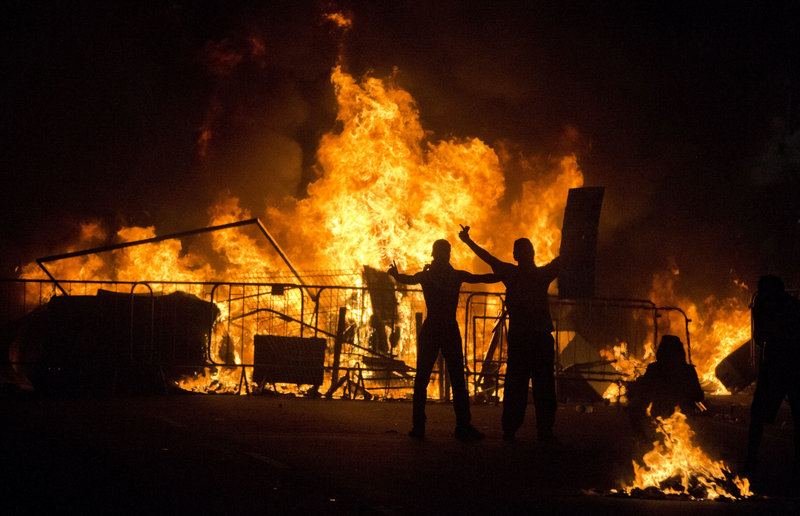BRASILIA, Brazil – More than a week of massive, violent protests across Brazil finally broke the near-silence from President Dilma Rousseff, who said during a prime time TV broadcast Friday that peaceful demonstrations were part of a strong democracy but that violence could not be tolerated.
Rousseff, standing before a Brazilian flag, said that the government knew there were many things “we can do quicker and better” and that Brazil “fought hard to become a democratic country” but that she could not tolerate the violence carried out by a minority of the protesters.
The leader, a former Marxist rebel who fought against Brazil’s 1964-85 military regime and was imprisoned for three years and tortured by the junta, pointedly referred to sacrifices her generation made to free the nation from dictatorship.
“We need to oxygenate our political system … and make it more transparent,” Dilma said.
Trying to decipher the president’s reaction to the unrest had become a national guessing game, especially after some 1 million anti-government demonstrators took to the streets the night before across the country to denounce everything from poor public services to the billions of dollars spent preparing for next year’s World Cup soccer tournament and the 2016 Olympics in Brazil.
The protests continued Friday, as about 1,000 people marched in western Rio de Janeiro, with some looting stores and invading an enormous $250 million arts center that remains empty after several years of construction. Police tried to disperse the crowd with tear gas as they were pelted with rocks. Police said some in the crowd were armed and firing at officers.
Local radio was also reporting that protesters were heading to the apartment of Rio state Gov. Sergio Cabral in the posh Rio neighborhood of Ipanema.
Other protests broke out in the country’s biggest city, Sao Paulo, where traffic was paralyzed but no violence reported, and in Fortaleza in the country’s northeast. Demonstrators were calling for more mobilizations in 10 cities on Saturday.
The National Conference of Brazilian Bishops came out in favor of the protests, saying that it maintains “solidarity and support for the demonstrations, as long as they remain peaceful.”
“This is a phenomenon involving the Brazilian people and the awakening of a new consciousness,” church leaders said in the statement. “The protests show all of us that we cannot live in a country with so much inequality.”
Rousseff had never held elected office before she became president in 2011 and remains clearly uncomfortable in the spotlight.
She’s the political protege of former President Luiz Inacio Lula da Silva, a charismatic ex-union leader whose tremendous popularity helped usher his former chief of staff to the country’s top office.
Send questions/comments to the editors.



Success. Please wait for the page to reload. If the page does not reload within 5 seconds, please refresh the page.
Enter your email and password to access comments.
Hi, to comment on stories you must . This profile is in addition to your subscription and website login.
Already have a commenting profile? .
Invalid username/password.
Please check your email to confirm and complete your registration.
Only subscribers are eligible to post comments. Please subscribe or login first for digital access. Here’s why.
Use the form below to reset your password. When you've submitted your account email, we will send an email with a reset code.